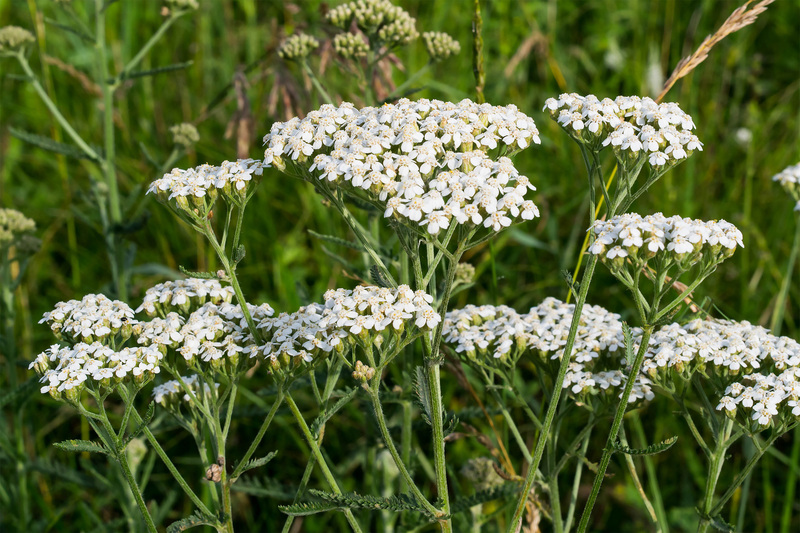How Gardens Can Serve as Climate Change Mitigators
Posted on 01/06/2025
How Gardens Can Serve as Climate Change Mitigators
Gardening has long been associated with revitalizing outdoor spaces, enhancing community well-being, and providing fresh produce. However, in an era where climate change is an ever-increasing concern, gardens play a pivotal role as climate change mitigators. From private yards to urban community plots, creative gardening practices can significantly reduce greenhouse gas emissions, boost biodiversity, and foster resilient urban ecosystems. This article delves deep into the multidimensional ways gardens mitigate the impacts of global warming, and how gardeners--novice or expert--can actively contribute to a greener, cooler planet.

Understanding Climate Change and Its Impacts
To fully appreciate the climate benefits of gardens, it is crucial to comprehend climate change itself. Climate change refers to long-term shifts in temperatures and weather patterns, primarily due to human activities such as the burning of fossil fuels and extensive deforestation. This leads to elevated levels of greenhouse gases (GHGs) like carbon dioxide and methane, which trap heat in the atmosphere and drive global warming.
- Increased frequency of extreme weather events (floods, hurricanes, droughts)
- Loss of biodiversity and habitat destruction
- Soil degradation and reduced agricultural productivity
In combating these changes, gardens are powerful tools that can intervene on multiple fronts.
Ways in Which Gardens Mitigate Climate Change
1. Carbon Sequestration: Capturing Atmospheric Carbon
Plants are natural carbon sinks. Through photosynthesis, they absorb carbon dioxide (CO2) and convert it to oxygen and organic matter. Gardens act as small-scale carbon banks, capturing and storing atmospheric CO2 in both plant biomass and soils.
- Trees and Shrubs: Woody plants like fruit trees and native shrubs have the ability to sequester significant amounts of carbon over their lifetimes.
- Soil Health: Properly managed gardens with compost and mulching practices enhance soil organic matter, increasing the soil's capacity to store carbon.
- Perennials vs. Annuals: Growing perennial plants helps stabilize soil and encourages sustained carbon sequestration as opposed to the frequent turning of soil with annual crop cycles.
2. Enhancing Urban Biodiversity
The importance of biodiverse gardens in climate mitigation cannot be overstated. Diverse plantings not only support more species but foster ecosystem resilience in the face of climate stressors.
- Pollinator Habitats: Flower and herb gardens attract bees, butterflies, and beneficial insects, essential for pollination and healthy food webs.
- Refuges for Urban Wildlife: Mixed plantings and water features provide shelter for birds, amphibians, and small mammals, supporting urban biodiversity and ecological balance.
- Disease and Pest Resistance: The greater the biodiversity in your garden, the less likely it is to fall victim to pests and diseases that can be exacerbated by climate change.
3. Reducing the Urban Heat Island Effect
Urban areas are typically warmer than their rural surroundings due to the heat-absorbing properties of buildings and asphalt--this is known as the urban heat island effect.
- Cooling Microclimates: Gardens, especially those with trees and vertical greenery, provide shade and release moisture through transpiration, cooling the air and reducing energy needs for air conditioning.
- Green Roofs: Rooftop gardens absorb sunlight, insulate buildings, and improve air quality by filtering pollutants.
- Permeable Surfaces: Lawns, flower beds, and mulched paths allow rainwater to permeate the soil, reducing runoff and mitigating local floods exacerbated by climate change.
4. Promoting Sustainable Food Systems
Industrial agriculture is a major emitter of greenhouse gases, largely due to transportation, energy-intensive production, and food waste. Home and community gardens play a crucial role in decarbonizing the food system:
- Local Food Production: Growing fruits, vegetables, and herbs in your backyard or community plot reduces the carbon footprint associated with transporting food across long distances.
- Organic Practices: Gardens that avoid synthetic pesticides and fertilizers minimize emissions of nitrous oxide and reduce soil and water pollution.
- Composting: By recycling kitchen and garden waste, gardeners divert organic matter from landfills, reducing methane emissions and enriching garden soils.
5. Resilience to Extreme Weather
Climate change brings more unpredictable and extreme weather events. Well-designed gardens improve resilience:
- Drought-Resistant Plantings: Selecting native or drought-tolerant species conserves water resources and keeps gardens productive even during dry spells.
- Rain Gardens: Depressions planted with water-loving plants collect and filter stormwater runoff, mitigating urban flooding and groundwater pollution.
- Windbreaks: Hedges and trees can serve as wind barriers, protecting homes and reducing soil erosion during storms.
Practical Steps for Turning Gardens into Climate Change Mitigators
Here's how you can transform your backyard or balcony into an environmental ally by maximizing its potential as a climate change mitigator:
1. Opt for Native and Diverse Plantings
- Choose native species: These plants are adapted to local weather patterns and require less water and maintenance.
- Add layers of vegetation: Incorporate trees, shrubs, ground covers, and perennials to provide year-round carbon capture and habitat.
2. Build and Maintain Healthy Soils
- Add compost: Incorporate organic material to store more carbon and support soil microbe communities that aid plant health.
- Mulch generously: Mulching not only suppresses weeds but retains moisture and adds organic content to the soil.
- Avoid excessive tilling: Minimal soil disturbance helps preserve soil structure and carbon storage.
3. Minimize Chemicals and Fossil Fuel Use
- Use manual or electric tools: Instead of gas-powered equipment, switch to electric or hand tools to cut emissions.
- Avoid synthetic fertilizers: These can emit GHGs and degrade soil health over time. Choose organic amendments and slow-release fertilizers.
4. Manage Water Sustainably
- Install rain barrels: Capturing rooftop runoff provides a free, sustainable water source for your garden.
- Practice drip irrigation: Reduces wasteful runoff and targets water delivery to plant roots.
- Create permeable surfaces: Replace concrete with gravel, mulch, or ground covers to boost rainwater infiltration.
5. Support and Join Community Initiatives
- Share knowledge and resources: Promote sustainable gardening practices through local workshops and online forums.
- Participate in urban greening projects: Help plant trees, maintain public gardens, or join neighborhood composting programs.
Benefits of Gardens Beyond Climate Change Mitigation
While the role of gardens in addressing climate change is substantial, they offer a multitude of co-benefits:
- Enhanced mental and physical well-being: Gardening provides stress relief, exercise, and a sense of accomplishment.
- Community building: Shared gardens encourage interaction, knowledge exchange, and collective action for sustainability.
- Educational opportunities: Gardens serve as living laboratories for all ages to learn about nature, climate action, and sustainable practices.

The Future of Gardens as Climate Change Solutions
As the climate crisis intensifies, the world is recognizing the value of nature-based solutions, including urban gardening for climate change mitigation. Many cities are launching programs to incentivize rooftop greening, community gardens, and tree planting initiatives. On a global scale, such efforts collectively provide vital ecosystem services that can help stabilize the climate.
- Integration into urban planning: Green infrastructure and garden spaces are increasingly embedded into city development projects to create climate-smart cities.
- Policy support: Governments are offering grants and resources for community gardening, tree planting, and sustainable landscaping to scale up the impact of home gardens on climate change.
Conclusion: Every Garden Can Make a Difference
In the face of global climate challenges, gardens are more important than ever as climate change mitigators. Whether you're tending a small balcony garden or designing a sprawling urban greenspace, your efforts can absorb carbon, cool your surroundings, enhance biodiversity, and build resilience to extreme weather events. By adopting eco-friendly gardening techniques, supporting your local community, and advocating for green urban policies, everyone can play a vital role in combating climate change--one garden at a time.
Start today, and let your garden be a flourishing ally in the fight against climate change.
Latest Posts
Step Into Peace with Exquisite Zen Garden Suggestions
Unleash your inner gardener with a thriving herb garden
Revitalize Your Orchids with Proper Care

